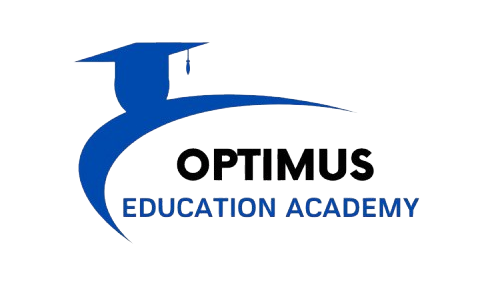BSc (Hons) Psychology with counselling
The BSc (Hons) Psychology with Counselling is ideal for those seeking a psychology degree with a focus on counselling. This program prepares graduates for careers in counselling and provides eligibility for the British Psychological Society’s independent training route in counselling psychology. It also supports applications for a Doctorate in Counselling Psychology or other qualifications related to counselling and mental well-being.

Course Overview
Counselling is a branch of psychology that focuses on a person-centred approach, helping individuals understand their experiences and develop strategies to manage their thoughts and behaviors. Counsellors work in various settings, including private practice, non-profit organizations, government agencies, and businesses.
In this program, you will explore key areas of psychology, such as social, cognitive, biological, and developmental psychology, along with research methods. You will also take specialized modules, including counselling psychology, core counselling skills, health and psychological well-being, psychological assessment, and managing the therapeutic process.
This undergraduate course opens up many career and further study opportunities. You will have access to modern digital learning tools and receive full support from an experienced academic team, including industry professionals, published authors, and experts in psychology.
Intakes
Duration
Made of Study
Awarded Degree
BSc (Hons) Psychology with counselling
UCAS Points
Fees
TBA
- Curriculum
- Entry Requirements
- Assessment
- Career Opportunities
- Tuition Fees & Financial Support
Year 0 (Foundation Year)
Core Modules:
– Academic Skills and Studying with Confidence
– Project
– Introduction to Business Operations and Management
– Starting a Business and Fundamentals of Marketing
—
Year 1
Core Modules:
– Financial and Management Accounting
– Operations Management
– Principles and Applications of Macroeconomics
– Management & Organisational Behaviour
– Marketing Fundamentals
– Ethics, Society and Employability
—
Year 2
Core Modules:
– Financial Accounting
– Principles of International Business
– Business Development I
– Professional Development and Placement
Option Modules (choose one):
– Legal Issues for Management
– Financial Management
Option Modules (choose one):
– Marketing Communications
– People Management
—
Year 3
Core Modules:
– Business & Management Strategy
– e-Business and e-Marketing
– Business Development II*
– Project Management
– Entrepreneurship and Creativity
Option Modules (choose one):
– Leadership
– Corporate Sustainability
Applications are reviewed individually. If you have significant work experience, qualifications from other institutions, or a degree in a different field, we are happy to discuss your application.
What You Need to Study
We aim to make learning flexible and accessible. To study this course, you will need a laptop or desktop PC (preferably with the latest version of Windows) and a stable internet connection. If you use a Chromebook, it must be a 2020 model or later, as only these versions support Jamovi, which is essential for the course’s statistical components. Through our online learning platform, you will access your course materials, support services, an online library with thousands of eBooks, and tools for assignments, note-taking, and collaboration.
Eligibility
To qualify for the BSc (Hons) Psychology with Counselling, you must have:
– At least three subjects passed at grade C or above at GCSE level, including mathematics, or an equivalent qualification. If you do not have a GCSE or equivalent in mathematics, we strongly recommend completing a no-assessment module before starting the course.
– A minimum of 12 months of relevant work experience may also be considered. You will need to submit a personal statement, references, and evidence of your work experience.
English Proficiency
You can demonstrate English proficiency with one of the following:
– IELTS 6.0 (with no less than 5.5 in any section)
– TOEFL iBT 80 or equivalent
– A letter confirming that your previous education was conducted in English
If you cannot provide this evidence, we offer an internal English test. We also provide an internal mathematics module for those who need to meet the required level or want to refresh their skills.
This course takes a practical approach to assessment, eliminating the need for traditional exams. Instead, assessments are designed to help you apply your knowledge to real-world situations, ensuring you are well-prepared for your future career.
Throughout the program, you will complete various assessment types, including individual reports, case study analyses, role-plays, group presentations, and reflective assignments. These assessments are developed in collaboration with your module leader and focus on personal growth, applying theory to practice, and encouraging innovative thinking.
The course structure is designed to be engaging and to develop key transferable skills valued by employers. Aside from one exam required for research methods, all other assessments focus on practical skills.
A key feature of the program is role-play sessions, where you can practice real-life counselling scenarios in a supportive environment. Guided by your lecturer, these sessions provide an opportunity to reflect on your approach and receive valuable feedback from both peers and academic staff.
A degree in psychology with counselling demonstrates your commitment to a career in professional practice. This program equips you with a broad range of knowledge, skills, and competencies, preparing you to apply your learning with confidence in a counselling role.
Industry-Relevant Skills
This course takes a global approach to psychology, moving beyond the traditional Western perspective found in many undergraduate programs. It aligns with British Psychological Society (BPS) accreditation and offers a cross-cultural perspective, making your degree internationally recognized and applicable in different countries.
How Will This Degree Benefit You?
This program has been developed with input from industry professionals, including counselling and clinical psychologists, psychology practitioners, emergency services professionals, and independent consultants. It is designed to address skills gaps across various career paths.
As a graduate, you will have a strong foundation in modern counselling theory and practice, including:
- Effective communication in complex situations
- Understanding and applying research data
- Critical thinking and problem-solving
- Handling primary source materials
- Scientific reasoning and evaluation
- Sensitivity to interpersonal dynamics
- Counselling techniques for effective listening and response
- The ability to adapt based on feedback
Career Paths After Graduation
With a BSc in Psychology with Counselling, you will have the skills needed to build a career in counselling or related fields.
You may choose to pursue further qualifications in psychotherapy, Improving Access to Psychological Therapies (IAPT), or a Doctorate in Counselling Psychology, which can lead to becoming a licensed counselling psychologist.
As of November 2023, the average salary for a counselling psychologist in the UK is £62,042 (Reed Salary Tracker).
Beyond counselling, your skills are valuable in various professions, including:
- Support work
- Nursing
- Mental health services
- Human resources
- Career advising
- Journalism
- Marketing and advertising
- Law enforcement
- Social work
Throughout the program, you will complete various assessment types, including individual reports, case study analyses, role-plays, group presentations, and reflective assignments. These assessments are developed in collaboration with your module leader and focus on personal growth, applying theory to practice, and encouraging innovative thinking.
The course structure is designed to be engaging and to develop key transferable skills valued by employers. Aside from one exam required for research methods, all other assessments focus on practical skills.
A key feature of the program is role-play sessions, where you can practice real-life counselling scenarios in a supportive environment. Guided by your lecturer, these sessions provide an opportunity to reflect on your approach and receive valuable feedback from both peers and academic staff.
For more information about course fees, please click here or call us at Optimus Education.
